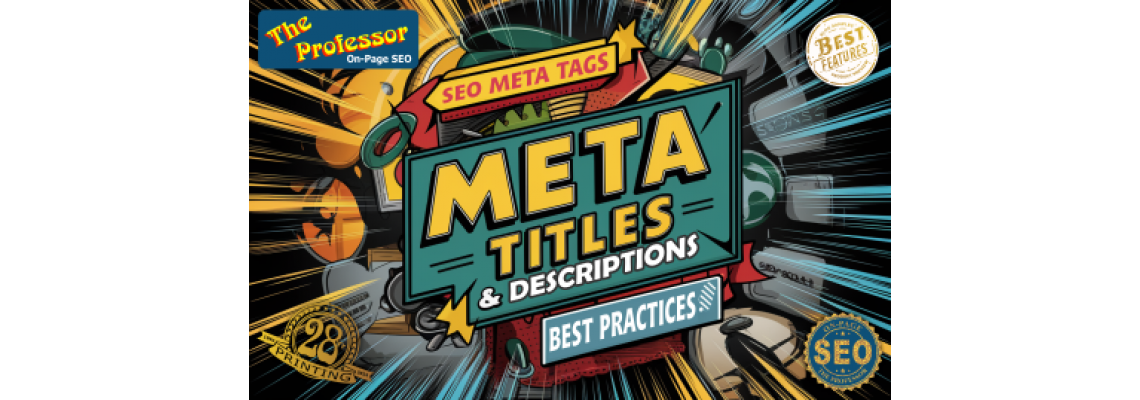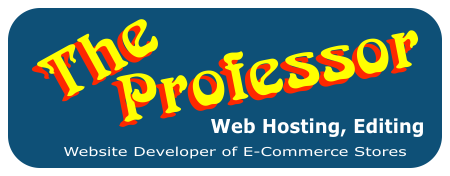
In the world of search engine optimization (SEO), meta tags play a pivotal role in defining how your website is perceived by search engines and users alike.
Meta tags, particularly meta titles and descriptions, are essential for conveying the relevance and quality of your content. Understanding their role and implementing best practices can significantly enhance your website's visibility and click-through rates.
What are Meta Tags?
Meta tags are snippets of text that describe a page's content; they don’t appear on the page itself but only in the page’s source code. These tags are crucial for SEO because they help search engines understand the content of a page and influence how your page appears in search engine results pages (SERPs).
Importance of Meta Titles
The meta title, also known as the title tag, is one of the most critical on-page SEO elements. It appears in three key places:
- Search Engine Results Pages (SERPs): The title tag is the clickable headline that appears in SERPs. It influences both search engine rankings and user click-through rates.
- Web Browsers: It appears in the browser tab, helping users identify and manage multiple open tabs.
- Social Media: When shared on social media, the title tag often appears as the headline of the shared link.
Best Practices for Meta Titles:
- Incorporate Primary Keywords: Ensure your primary keyword is included near the beginning of the title tag. This helps search engines quickly understand the topic of your page.
- Keep it Concise: Aim for a title length between 50-60 characters. Longer titles may get cut off in SERPs, losing important information.
- Make it Compelling: Write a title that is both informative and enticing. Encourage users to click through by highlighting the value or benefit of your content.
- Avoid Keyword Stuffing: Using too many keywords can make your title seem spammy. Focus on readability and relevance.
- Unique Titles for Each Page: Ensure each page on your website has a unique title tag to avoid confusion and duplicate content issues.
Importance of Meta Descriptions
Meta descriptions are brief summaries of a web page's content that appear below the meta title in SERPs. While they are not a direct ranking factor, they play a crucial role in attracting clicks from users.
Best Practices for Meta Descriptions:
- Be Descriptive and Engaging: Clearly describe what the page is about and include a call-to-action to entice users to click.
- Optimal Length: Aim for a length between 150-160 characters. This ensures the entire description is visible in SERPs without being cut off.
- Include Relevant Keywords: Incorporate primary and secondary keywords naturally. They will be bolded in the SERPs if they match the user’s search query, making your page more appealing.
- Avoid Duplicate Descriptions: Each page should have a unique meta description to accurately reflect the content and purpose of the page.
- Reflect the Content: Ensure that your meta description accurately represents the content of your page to meet user expectations and reduce bounce rates.
The Synergy Between Meta Titles and Descriptions
When optimized together, meta titles and descriptions can significantly improve your SEO efforts. They should work in harmony to provide a clear and compelling snapshot of your page’s content. Here’s how they complement each other:
- User Experience: Both elements should provide a coherent and appealing message that accurately reflects the content, enhancing user experience and satisfaction.
- Click-Through Rates: A well-crafted meta title catches the user’s attention, and a persuasive meta description convinces them to click through. Together, they drive higher click-through rates.
- Search Engine Understanding: By clearly defining the content and purpose of your page, meta titles and descriptions help search engines index and rank your pages more effectively.
Conclusion
Meta tags, specifically meta titles and descriptions, are fundamental components of effective on-page SEO. They not only help search engines understand and index your content but also play a crucial role in attracting and engaging users. By following best practices for crafting meta titles and descriptions, you can enhance your website's visibility, improve click-through rates, and ultimately drive more traffic to your site. Remember, SEO is an ongoing process, and regularly reviewing and updating your meta tags is key to maintaining optimal performance in search engine rankings.

Leave a Comment